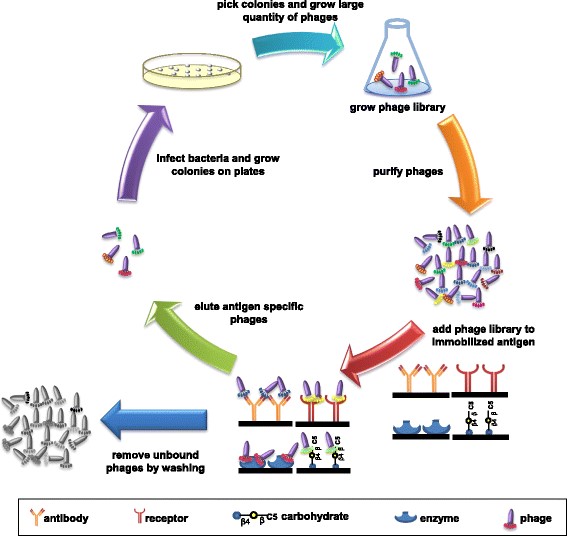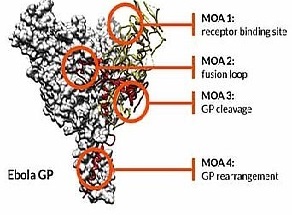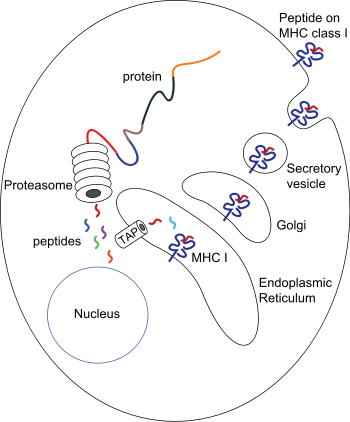Immunogenic Epitope of TAA Discovery
Antibodies generally react only with a certain part of a macromolecular antigen. This specific site is called an antigenic determinant, also known as an antigenic epitope, which is a chemical group in an antigen molecule that determines antigen specificity. For tumor cells, the tumor-associated antigen (TAA) often activates lymphocytes through its epitope binding to the antigen receptor on the corresponding lymphocyte surface, thereby causing an immune response and threatening the health of the human body.
It is essential to make appropriate selection predictions for epitopes to control its immunogenicity. In recent, Creative Biolabs offers a variety of immunogenic epitope discovery, selection, and prediction services for novel TAA identification and characterization, based on years of experimental experience and powerful bioinformatics analysis capacity.

|
Epitope SelectionAn epitope is a specific chemical group in an antigen molecule that determines the specificity of an immune response, and is the smallest structural and functional unit in which an antigen specifically binds to a T/B cell antigen receptor (TCR/BCR) or antibody. Epitopes are the basis of immunogenicity, and in-depth study of epitope selection is of great significance for the design of oncology drugs and therapeutics as well as the development of diagnostic reagents. Here, Creative Biolabs offers the following methods to achieve rapid, intuitive, and accurate epitope selection & identification, including synthetic peptide technology, amino acid site-directed mutagenesis, immunoaffinity mass spectrometry, bacterial surface display technology combined with flow cytometry, and phage peptides combined with peptide chip technology for high-throughput epitope identification. |

|
Screening Immunogenicity of Predicted T-cell EpitopesThe immunogenicity screening of T cell epitopes is generally performed by major histocompatibility complex (MHC)-associated peptide proteomics assay (MAPPS) before clinical practice. For the production of high-affinity TAA, the necessary step is to present T-cell epitopes on the protein to CD4+ T cells via MHC class II molecules on antigen-presenting cells (APCs), thereby promoting the release of cytokines and the production of antibodies from B cells. Today, Creative Biolabs devotes to screening immunogenicity of predicted T-cell epitopes, with high specificity, high efficiency, and high safety. Frequently used techniques include but not limited to enzyme-linked immunospot assay, enzyme-linked immunosorbent assay, as well as bioinformatics statistical and other statistical tools. |

|
Direct Isolation and Analysis of MHC-associated PeptidesThe peptide antigen binds to a molecule encoded by an MHC and presents a target molecule that forms T lymphocytes on the cell surface. This key aspect of the adaptive immune system can help eliminate pathogen-infected cells and cancer cells, as well as produce antibodies. To establish the isolation and analysis of MHC-associated peptides has important research significance for tumor diagnosis and immunotherapy. Now, Creative Biolabs provides dedicated devices and state-of-the-art techniques to advance MHC-associated peptide-related projects. Our services contain the use of protease hydrolysis to generate peptides, immunoaffinity chromatography (reverse-phase high-performance liquid chromatography, RP-HPLC) to separate peptides, and sequencing or LC-MS/MS to analyze peptides of interest. |
Highlights
- The most advanced immunogenic epitope discovery and identification services of TAAs for worldwide customers.
- Multiple strategies to achieve epitope selection, screening immunogenicity, and detection of MHC-associated peptides.
- A comprehensive range of test species and extensive experience in screening immunogenic epitopes.
- Customized services and professional technical supports can satisfy all clients’ demands on specific projects.
TAAs are proteins that have acquired mutations or have raised expressions at the sub-cellular level. They are most often ideal immunotherapy targets that play a central part in tumor progression. As a first-class supplier in target identification, Creative Biolabs is committed to the study of immunogenic epitope screening of TAAs and has established corresponding epitope discovery services for further cancer immunotherapy. If you are interested in our TAA discovery services, please do not hesitate to contact us for more information.
Reference
- Wu, C.H.; et al. Advancement and applications of peptide phage display technology in biomedical science. Journal of Biomedical Science. 2016, 23(8). Distributed under Open Access license CC BY 4.0, without modification.
For Research Use Only.
